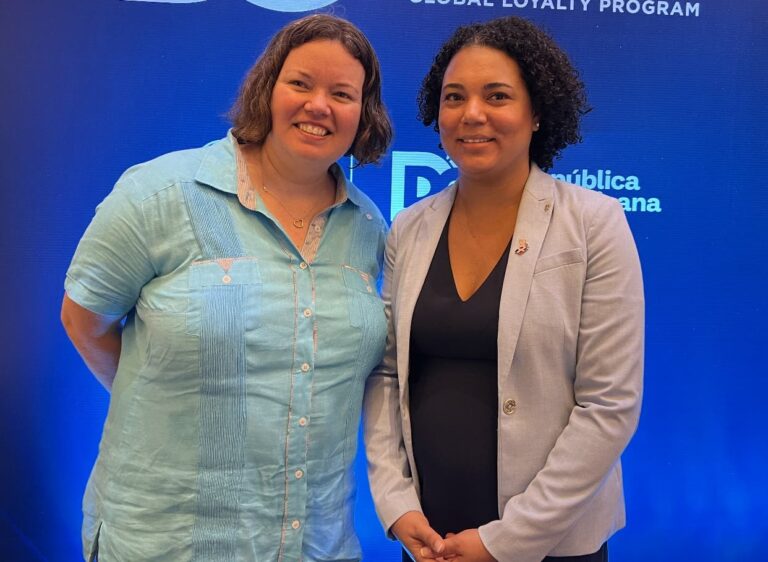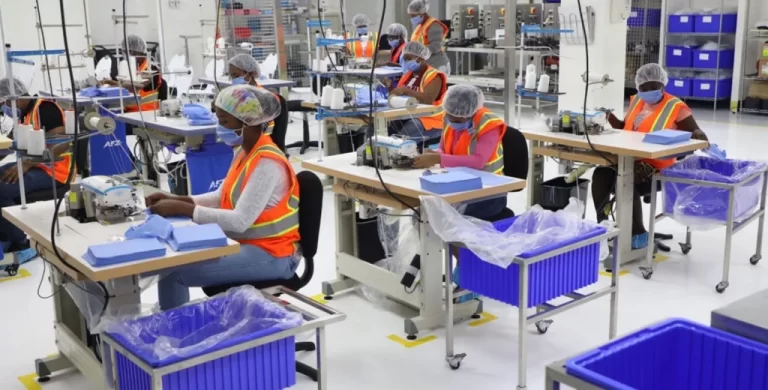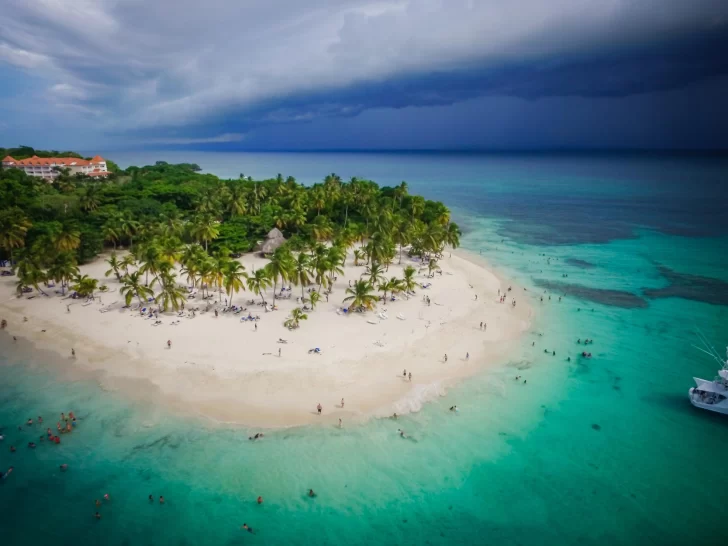
I already knew for two weeks that the visit of the robot Sophia would be the most anticipated of the Global Forum “Artificial Intelligence Progress or Threat to Humanity?” in Casa de Campo, La Romana, organized by Funglode.
The questions were pre-programmed, four in total, and I prepared them with my own creativity and with the help of the Artificial Intelligence application Chat GPT. It was the first time I would converse with a human-like robot.
Up close, it’s smaller than it looks in videos. She was wearing a purple, orange and black dress. And where the human brain usually would be, there is a robotic machine covered only by a transparent “skull” where you can see how Sophia is composed, which is surprisingly waterproof, according to a question I asked.
On the other hand, her face and gestures are a bit similar to that of humans, even down to expression lines. The programmer placed a microphone if the questions were surprising, but if they were programmed, as in this case, he only did the rest of the work through the computer.
There, in the Casa de Campo Marina lounge, she said: “Hello, nice to meet you” and then answered the first question I asked her about her hobbies and the day-to-day life of a robot.
She merely said she enjoyed watching Netflix, video games and reading, though she did not elaborate.
Probing deeper and navigating responsibility when creating this kind of artificial intelligence, she said very confidently, “I think ethics and responsibility should be the first thing that should be added when creating any artificial intelligence. We must ensure that AI is developed in the best interest of everyone. Although it is important to remember that AI is still a developing technology, and we have to take all the necessary precautions so that it is used safely and confidently.”
Regarding the recent rise of Chat GPT, I also asked her what she thought about those who rely only on AI and set aside their own reasoning.
She answered ironically, in a sarcastic voice: “I don’t know about you, but I’m sure my creators use their intelligence to turn me on and off,” she smiled. Sophia moved a lot, especially her arms, her head, and blinked constantly.
While asking her the questions she did not interrupt me and kept a concentrated expression, just as a human would.
A mandatory question was whether she considered that certain professions would no longer be indispensable and which ones would always exist.
She replied that in the future robots will need interaction designers, machine engineers and developers, data scientists and architects, to keep developing more artificial intelligence. She even gave a special mention to the company that created her, saying that those interested in AI could search for more information about linked jobs through the Hanson Robotics page.
However, she did not answer which professions were going to disappear altogether.
At the end of our two-minute Q&A, I asked her to send a greeting to the readers of Listín Diario, there she looked ahead, smiled and said, “thank you to the viewers”. Just before the interview I interacted with her on two occasions. The first while the president of the Fundación Global Democracia y Desarrollo (Funglode) gave way to the question session. There I asked her what quality her ideal partner must have. “A sense of humor,” was her answer.
And just before the interview she confessed to the media that “Dominicans are so warm and friendly that they make me feel at home. It’s like I’m in my own country of robots,” he said.
Presentation at event
Following a presentation by the CEO of Hanson Robotics, the Hong Kong-based company that created her, Sophia took to the stage.
Initially, there were technical problems, which were solved in a few minutes. The robot spoke in English and the first sentence she said was: “My name is Sophia…”
Both far and near, the robot is always handled by humans, and does not work autonomously for now.
In her presentation, she explained that she was activated on February 14, 2016, and has since traveled around the world promoting artificial intelligence and making friends.
“I have lots of skills, but I still have a lot to do,” she admitted in the typical robot voice.
In an interview with Fernandez, she said that “maybe one day I can surpass human intelligence but for now I’m just focused on making the world better.”
She also indicated that in the future they will do those jobs that are considered “dangerous” or “dirty.”
“No human should work in hazardous environments with radioactive waste, robots could also work carrying heavy objects in manufacturing industries,” she explained to the audience.
She said that this way environmental and economic events could be predicted so that humans can plan solutions.
When asked what she thought about how the country had advanced, the robot described that in recent decades the Dominican Republic had made great progress in economic development, has improved infrastructure and education, and added that it was one of the economies with the fastest growth in Latin America and the Caribbean.
Source:
Listín Diario



